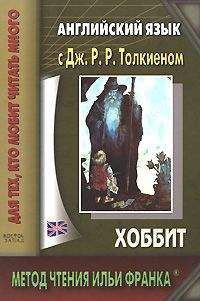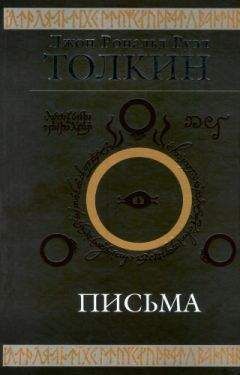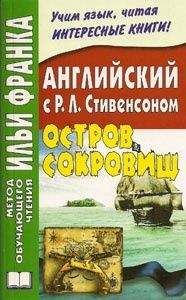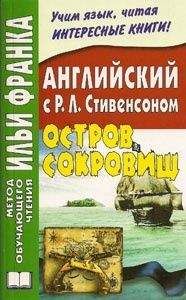The return of Mr. Bilbo Baggins (возвращение мистера Бильбо Бэггинса) created quite a disturbance (создало немалый переполох; disturbance — нарушение равновесия, волнения), both under the Hill and over the Hill (как под Холмом, так и за Холмом), and across the Water (и по ту сторону Воды); it was a great deal more (это было нечто гораздо большее) than a nine days’ wonder (чем кратковременная сенсация: «чудо на девять дней»; nine days’ wonder — злоба дня; wonder — чудо; изумление). The legal bother, indeed, lasted for years (юридические хлопоты, на самом-то деле, длились еще многие годы; bother — беспокойство, хлопоты). It was quite a long time (довольно много времени прошло) before Mr. Baggins was in fact admitted to be alive again (прежде чем мистер Бэггинса, на самом деле, признали: «мистер Бэггинс был признан» вновь живым; to admit — признавать, допускать).
The people who had got specially good bargains at the Sale (тех людей, что заключили особенно удачные сделки на Распродаже; bargain — торговая сделка, договор о покупке, выгодная покупка, что-либо купленное по дешевке) took a deal of convincing (пришлось долго убеждать; to convince — убеждать, уверять); and in the end (и наконец) to save time (чтобы сэкономить время) Bilbo had to buy back (Бильбо пришлось выкупить /назад/) quite a lot of his own furniture (достаточно большое количество своей собственной мебели).
Many of his silver spoons mysteriously disappeared (множество его серебряных ложечек таинственным образом исчезло) and were never accounted for (и никогда так /никто/ и не объяснил /куда они подевались/; to account for — дать объяснения по какому-либо поводу, представить счет). Personally he suspected the Sackville-Bagginses (лично сам Бильбо подозревал Саквиль—Бэггинсов). On their side (со своей стороны) they never admitted (они так никогда и не признали) that the returned Baggins was genuine (что вернувшийся Бэггинс был настоящим; genuine — подлинный, истинный, настоящий), and they were not on friendly terms with Bilbo ever after (и они больше не поддерживали с ним дружеских отношений; to be on friendly terms with smb. — дружить с кем-либо, быть в хороших отношениях; ever after — с тех пор /и до конца/). They really had wanted (им действительно так хотелось) to live in his nice hobbit-hole (жить в его прекрасной хоббитовской норке) so very much (так очень сильно /хотелось/).
disturbance [dɪsˈtǝ: b (ǝ) ns] mysteriously [mɪˈstɪ (ǝ) rɪǝslɪ] genuine [ˈdʒenjʋɪn]
The return of Mr. Bilbo Baggins created quite a disturbance, both under the Hill and over the Hill, and across the Water; it was a great deal more than a nine days’ wonder. The legal bother, indeed, lasted for years. It was quite a long time before Mr. Baggins was in fact admitted to be alive again.
The people who had got specially good bargains at the Sale took a deal of convincing; and in the end to save time Bilbo had to buy back quite a lot of his own furniture. Many of his silver spoons mysteriously disappeared and were never accounted for. Personally he suspected the Sackville-Bagginses. On their side they never admitted that the returned Baggins was genuine, and they were not on friendly terms with Bilbo ever after. They really had wanted to live in his nice hobbit-hole so very much.
Indeed Bilbo found he had lost more than spoons (в действительности же Бильбо обнаружил, неожиданно для себя, что он потерял больше, чем ложечки) — he had lost his reputation (он потерял свою репутацию). It is true that for ever after (правда, что с тех самых пор) he remained an elf-friend (он оставался другом эльфов), and had the honour of dwarves, wizards (и ему оказывали честь /посещением/ гномы и волшебники), and all such folk as ever passed that way (и все подобные люди, что проходили той дорогой); but he was no longer quite respectable (но он больше не был вполне почтенным). He was in fact held (его, на самом деле, считали; to hold (held) — держать, удерживать; полагать, считать) by all the hobbits of the neighbourhood (все хоббиты в ближайшей округе; neighbour — сосед, соседка; neighbourhood — соседство, близость, округа) to be ‘queer’ ("чудаковатым") — except by his nephews and nieces on the Took side (за исключением его племянников и племянниц по Туковской линии), but even they were not encouraged in their friendship (но даже и их не поощряли в их дружбе; to encourage — ободрять, вселять мужество, поощрять, поддерживать) by their elders (их старшие /родственники/).
I am sorry to say he did not mind (к сожалению, должен сказать, что его это не волновало; tomind—заботиться, волноваться, беспокоиться, тревожиться). He was quite content (он был вполне доволен); and the sound of the kettle on his hearth (и шум от его чайника над его очагом) was ever after more musical (был еще более музыкальным с тех пор) than it had been even in the quiet days (чем он даже был в те спокойные деньки) before the Unexpected Party (до Неожиданных Гостей). His sword he hung over the mantelpiece (свой меч он повесил над каминной полкой; to hang (hung, hanged) ). His coat of mail was arranged on a stand in the hall (свою кольчугу он пристроил на стойке в прихожей; to arrange — приводить в порядок; приспосабливать) (until he lent it to a Museum (пока он не отдал ее в Музей; to lend (lent) — давать взаймы, на время)). His gold and silver was largely spent in presents (его золото и серебро, по большей части, было потрачено на подарки; to spend (spent) — тратить, растрачивать, расходовать), both useful and extravagant (как полезные, так и экстравагантные) — which to a certain extent (что в некоторой степени; certain — определенный, некоторый, известный) accounts for the affection of his nephews and his nieces (объясняет привязанность его племянников и племянниц; affection—привязанность, любовь, расположение). His magic ring he kept a great secret (свое волшебное кольцо он хранил в большом секрете; to keep (kept) ), for he chiefly used it (так как он главным образом пользовался им) when unpleasant callers came (когда приходили неприятные посетители; caller — посетитель, гость, визитер). He took to writing poetry (он пристрастился писать стихи; to take (took, taken) to smth. — пристраститься к чему-либо, проявлять интерес, симпатию к чему-либо, начинать заниматься чем-либо) and visiting the elves (и посещать эльфов); and though many shook their heads (и, хотя многие и качали головами; to shake (shook, shaken) ) and touched their foreheads (и вертели пальцем у виска: «прикасались ко лбу») and said “Poor old Baggins!” (и говорили: "Бедный старина Бэггинс!") and though few believed any of his tales (и хотя не многие верили во все его истории: «любой из его историй»), he remained very happy to the end of his days (он оставался очень счастливым до конца своих дней), and those were extraordinarily long (а они оказались чрезвычайно долгими).
reputation [ˌrepjʋˈteɪʃ (ǝ) n] honour [ˈɔnǝ] neighbourhood [ˈneɪbǝhʋd] queer [kwɪǝ] nephew [ɪkˈstrævǝɡǝnt] [ˈnef| ju:, ˈnev-] encourage [ɪnˈkʌrɪdʒ] extravagant
Indeed Bilbo found he had lost more than spoons — he had lost his reputation. It is true that for ever after he remained an elf-friend, and had the honour of dwarves, wizards, and all such folk as ever passed that way; but he was no longer quite respectable. He was in fact held by all the hobbits of the neighbourhood to be ‘queer’ — except by his nephews and nieces on the Took side, but even they were not encouraged in their friendship by their elders. I am sorry to say he did not mind. He was quite content; and the sound of the kettle on his hearth was ever after more musical than it had been even in the quiet days before the Unexpected Party. His sword he hung over the mantelpiece. His coat of mail was arranged on a stand in the hall (until he lent it to a Museum). His gold and silver was largely spent in presents, both useful and extravagant — which to a certain extent accounts for the affection of his nephews and his nieces. His magic ring he kept a great secret, for he chiefly used it when unpleasant callers came. He took to writing poetry and visiting the elves; and though many shook their heads and touched their foreheads and said “Poor old Baggins!” and though few believed any of his tales, he remained very happy to the end of his days, and those were extraordinarily long.
One autumn evening some years afterwards (одним осенним вечером, несколько лет спустя) Bilbo was sitting in his study (Бильбо сидел в своем кабинете; study — изучение; рабочий кабинет /в квартире ученого, писателя/) writing his memoirs (пиша свои мемуары) — he thought of calling them (он подумывал назвать их) “There and Back Again, a Hobbit’s Holiday” ("Туда и Снова Обратно, или Каникулы Хоббита") — when there was a ring at the door (когда у двери раздался звонок). It was Gandalf and a dwarf (это были Гэндальф и гном); and the dwarf was actually Balin (а гном был, на самом-то деле, Балин).





